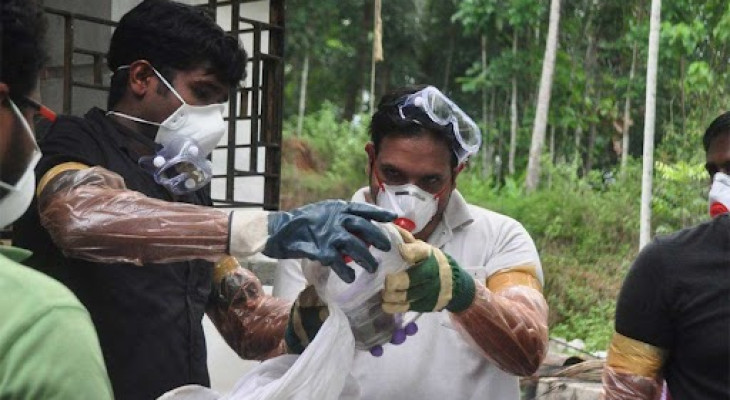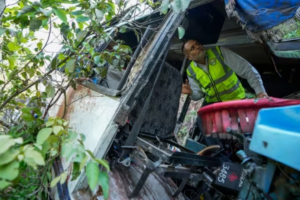A health advisory warning has been issued in Kerala’s Kozhikode district regarding a suspected Nipah virus outbreak. Health Minister of Kerala Veena George held a high-level meeting on September 11, where she advised the citizens to take precautionary measures. The matter spread when two unnatural fever deaths were reported in Kozhikode on August 30, Four relatives (including one adult and three children) who were in contact with one of the victims were admitted to a hospital for treatment. Another apparent death from the Nipah virus occurred on September 11. In May 2018, 17 people died due to the Nipah virus in Changaroth village of Kozhikode district near Perambra and in 2021, a 12-year-old boy also died of a virus.
The Chief Minister of Kerala P. Vijayan requested everyone to follow the action plan issued by the medical advisory committee. It’s my appeal to the people of states that do not panic or not believe in fake news, the government must ensure the safety and security of its citizens. He also added the state is observing the situation very closely.
Nipah is a deadly virus with a mortality rate of over 50 per cent. Nipah virus is a zoonotic virus which jumps from animals to humans who are in touch with them. It is a viral infection that mainly affects the body of animals such as bats, pigs, dogs, and horses. Symptoms of this virus are; fever, swelling of the brain, headache, breathing issues, cough and sore throat, vomiting, diarrhoea, severe pain, and muscle weakness.
Nipah can spread to humans through close contact with infected animals or through secretions containing the virus in fruit trees, fruits, date palm sap, sap or rushes. It can spread from person to person through close contact at home or in the hospital. It can be spread by handling the corpses of Nipah patients.
This virus is also known to spread through droplets in closed and confined environments. This happened with the 2018 outbreak in Kerala. The infection spread from the index patient to others in a small x-ray corridor in the hospital. It cannot spread in open, well-ventilated spaces.
Advertisement




